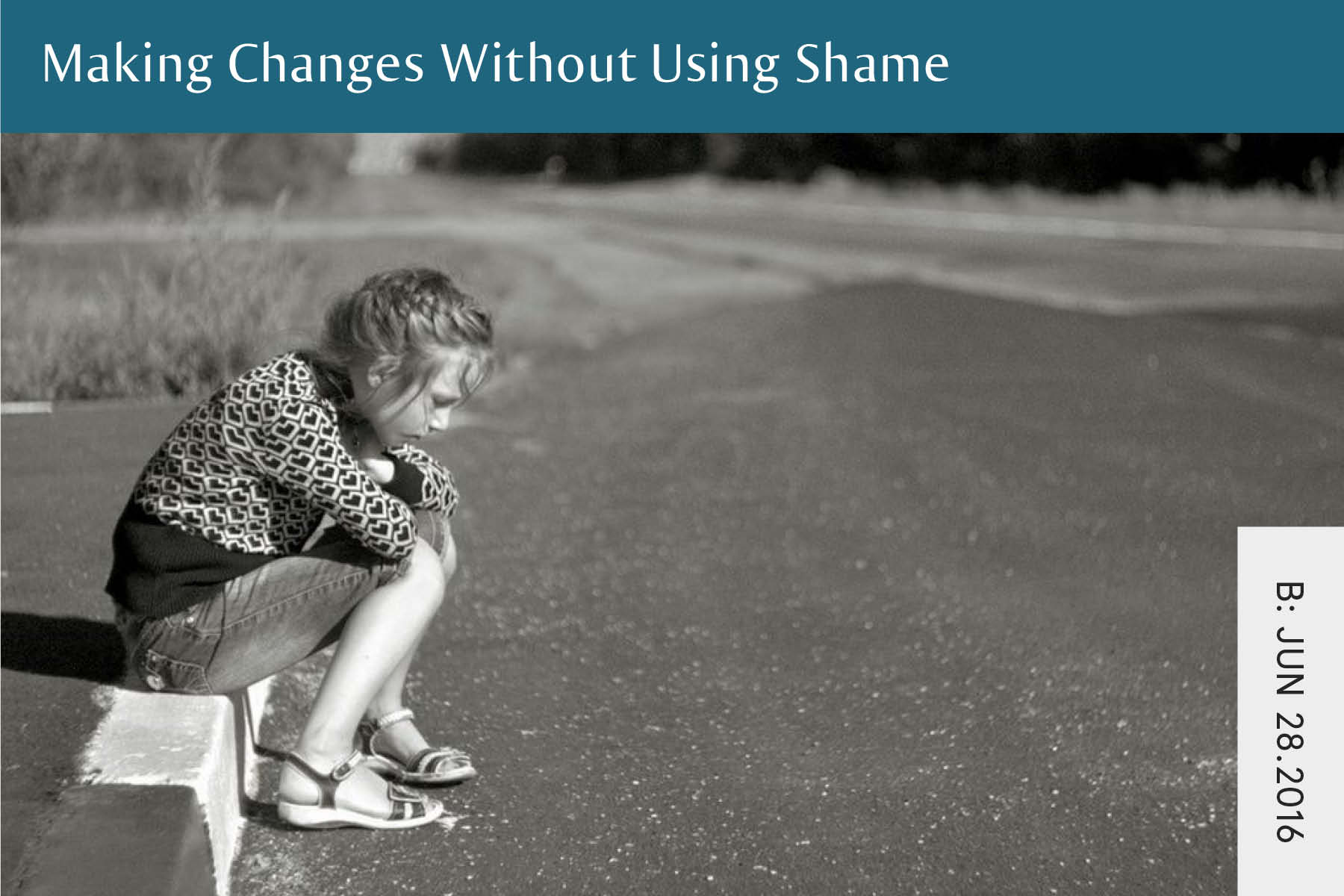

I want you to imagine a small child who is 8 or 9. They enjoy school but are struggling with a couple of subjects. They are trying their best; things are just a little over their head.
After some deliberation with the teachers and the child’s parents, the child is put in the remedial class.
The parents are told that this remedial class is different. They’ve worked out a way to help kids actually catch up. Instead of being left behind, in no time their understanding will be up to scratch and they’ll be back in the “normal” class.
So the child goes to this new class but it’s not like they expected it to be. The course is actually the exact same with the only difference being they use shame “to make them excel”.
They are regularly told they are stupid and just need to try harder. If they get an answer wrong the teacher makes fun of them. If they say they don’t know an answer they are regularly made to cry.
The teacher tells them that all this is for the best. That this will spur them on to do better and be better.
Out of this class, maybe there is a very small percentage of students that do actually benefit from this style of teaching. They take these insults and use it to power them to work more and become “smarter”. They adopt an attitude of “I’ll show them” and it leads to great results.
But this is a tiny fraction. As a percentage it’s probably in the single digits and at the low end.
For the rest of the class this totally backfires. Rather than “motivating” them, they internalise all of the negative things they hear until they believe it’s true.
And this has a ripple affect. While they used to only struggle with a couple of subjects, they start disliking all of them. They become not just apathetic about learning, but rebellious towards it. They don’t want to do anything that they even associate with it.
And as a percentage this reaction accounts for nearly everyone else in the class. There will be degrees with how much a ripple affect this has and how strong the anger and resentment is, but overall these students do worse, not better, in this subject.
Now with this scenario I think most people would agree that there are better ways to run the class to help these students. Shame is a terrible motivator. And it’s rare, if ever, that shame leads to better results. Especially when this shame is repeated over and over again.
But why is it so easy to understand when thinking about teaching kids how to be better at math or English, but we completely forget it when talking about weight.
Just as making someone feel terrible about math isn’t going to help them find joy in the subject and improve their understanding, making someone feel terrible about their body isn’t going to lead them to enjoy exercise and keep up the habits that lead to better health (that may lead to weight loss).
Most people would look at the teacher who is guiding a class in the manner and rightfully ask “do they really care about the children?” Do they genuinely want to improve these kids’ abilities or is their approach about something else.
And I think the same about people who shame people for their weight. They always say it is because they want to “help” the other person but this is questionable.
(A big part of this is because health isn’t just about the physical body, but about mental and emotional health. You may (temporarily) manipulate someone’s body to be a lesser weight, but if through this process they grow to despise themselves more and more, then mental and emotional health is being crushed. And this is before we even look at whether the method someone is using to lose weight is even enhancing their physical health).
In so many realms of life the idea of using shame as a tool for change is seen for what it is, counter productive and cruel. Unfortunately it seems we still need to learn that this applies to weight loss or even just getting people to keep up healthful habits.
I’m a leading expert and advocate for full recovery. I’ve been working with clients for over 15 years and understand what needs to happen to recover.
I truly believe that you can reach a place where the eating disorder is a thing of the past and I want to help you get there. If you want to fully recover and drastically increase the quality of your life, I’d love to help.
Want to get a FREE online course created specifically for those wanting full recovery? Discover the first 5 steps to take in your eating disorder recovery. This course shows you how to take action and the exact step-by-step process. To get instant access, click the button below.
Discover the First 5 Steps To Take In Your Eating Disorder Recovery
Get started the right way and be on the path to full recovery and the freedom it will bring YOU.
Unlike other approaches focusing on just one aspect of recovery, this course shares a framework that demonstrates what full recovery is really about and gives you the tools to get there.
Get Instant Access!
Share
Facebook
Twitter